Africa
The Okwelians: Unlocking New Economic Paths for Cameroon [Business Africa]

This week, Business Africa shines a spotlight on Cameroon with a special edition.
On the agenda: The Okwelians, an idea laboratory focused on empowering youth and the private sector to transform the economy, the challenge of local cocoa value addition for a more competitive industry, and the rise of digitalized livestock farming, an innovation hindered by lack of funding.
The Okwelians: An Idea Laboratory for the Future of Cameroon
The think-do tank The Okwelians held its strategic summit in Yaoundé from March 19 to 21, 2025. The two-day summit brought together over 300 participants with the goal of redefining Cameroon’s socio-economic outlook by 2035.
In the face of Cameroon’s economic and social challenges, The Okwelians positions itself as a key player in both reflection and action. Founded by Maître Jacques-Jonathan Nyemb, this think-tank aims to encourage youth to actively participate in the country’s transformation.
“We have trained nearly 1,000 young people in leadership, ethics, and innovation. We offer mentoring, tutoring, and encourage community service,” explains the lawyer. But The Okwelians is also an idea laboratory, with over 200 publications and 60 experts mobilized to address crucial issues such as social cohesion, economic transformation, and governance.
An Economic Transformation in Question
Cameroon faces several major challenges: underemployment, the rising cost of living, and dependence on imports. “The challenge is to produce what we consume and consume what we produce,” says Maître Nyemb. He stresses the need to improve infrastructure, human capital, and the business climate to create a more robust economic fabric.
What Role for the Private Sector?
In a context where the state plays a central role, The Okwelians advocates for a more dynamic and inclusive private sector. “The state doesn’t know everything, it can’t do everything. There needs to be a more representative business community, covering more territories and small businesses,” he explains. This evolution is seen as essential for fostering investment and entrepreneurship.
A Model Adaptable to Other Countries?
While the initiative is focused on Cameroon, its approach has inspired others beyond the country’s borders. The Okwelians collaborates with think tanks in Central Africa and within the Southern Voice network. “We recently studied agricultural value chains with female agri-preneurs and shared these findings internationally,” adds Maître Nyemb.
In the context of Cameroon’s economic transition and debates about the country’s future, The Okwelians positions itself as a space for reflection and experimentation, helping to shape the contours of a more inclusive and sustainable development model.
Cameroon: The Battle for Local Cocoa Transformation
With nearly $1 billion in annual revenue, Cameroon is the world’s fifth-largest cocoa producer. However, 80% of cocoa beans are exported without transformation, depriving the country of valuable added value.
The Difficult Path to Value Addition
At The Okwelians summit, experts and industry players discussed the challenges and opportunities facing Cameroonian cocoa. “Local transformation is crucial for increasing farmers’ income and boosting the economy,” emphasized Narcisse Olinga, Vice President of the International Cocoa Council (ICCO) for the 2022-2023 cocoa year. However, challenges remain: poor infrastructure, restrictive European regulations on deforestation, and trade barriers targeting finished products. “Europe accounts for 80% of our exports, but it blocks our chocolates on the grounds of competition,” he lamented.
Africa Processing Company, A Pioneering Model
In Douala, this startup is breaking the mold by producing cocoa paste and butter for both local and international markets. “Why import chocolate when we have the beans?” asks its leader, Lisette Claudia Tame. The factory processes 4,000 tons per year, with a goal of reaching 24,000 tons.
The Key: Shortening the Chain
The company focuses on direct procurement from farmers, eliminating intermediaries. “Less margin taken, more income for them,” she explains. However, without massive bank support and facing complex regulations, industrialization remains a challenging path.
While Asia and North Africa emerge as alternatives to Europe, one question remains: Will Cameroon manage to keep a piece of the pie… or will it continue to export the ingredients?
Gajo Livestock: Livestock 2.0 Facing the Funding Challenge
Fotso Ngassa, a livestock specialist, lost everything during the crisis in southwestern Cameroon. Seeking refuge in Douala, he had to start from scratch before launching Gajo Livestock, a digital platform connecting farmers and customers across Africa.
His ambition? To modernize the sector by facilitating cattle sales, providing online veterinary access (via Farm Genius 2.0), and ensuring certified products. However, despite the innovation, funding remains a major hurdle. “There has been no institutional or private support so far,” he laments, calling on business angels to invest and accelerate his expansion.
In the meantime, Fotso continues to meet with local farmers, convinced that his solution can transform eating habits and strengthen food security in Africa. His story is emblematic of the challenges young African entrepreneurs face, caught between innovation and lack of capital. The African livestock sector, with meat consumption set to more than double by 2050, offers strong growth potential. GAJO Livestock aims to capitalize on this growing market.
Africa
Unprecedented trial for apartheid atrocities opens in South Africa
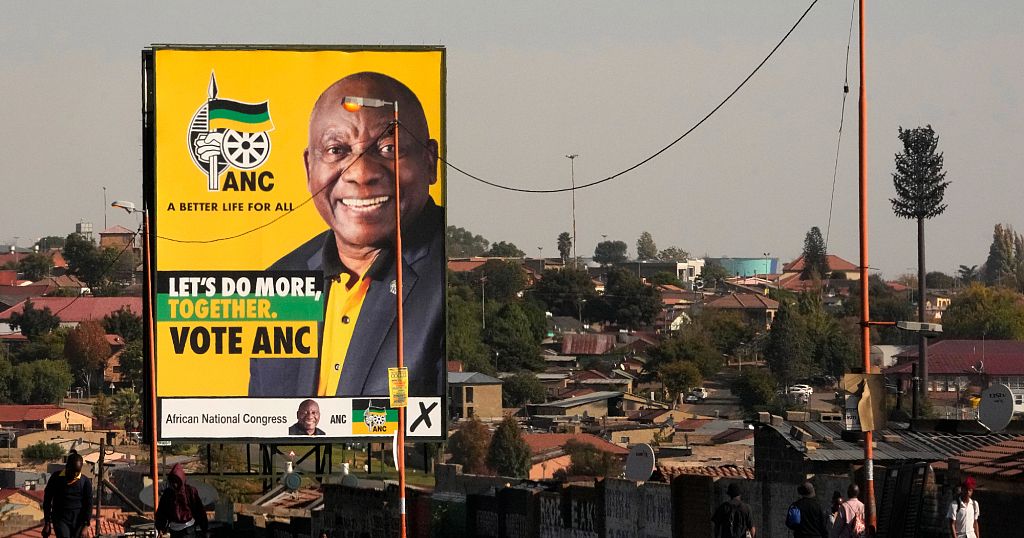
A significant step by South Africa’s legal system in confronting the atrocities of the country’s dark political past.
A judge this week approved the trial of two apartheid-era police officers for their involvement in the 1982 assassination of three student activists.
The prosecution is unprecedented. Until now, no individual had been held accountable for the crime of apartheid.
The case centers around three young freedome fighters killed in an explosion in 1982. The victims were part of a resistance movement opposed to the apartheid regime which enforced White-only rule and domination over the Black majority.
Experts say the trial could open the door for others.
Also this week, South Africa reopened an investigation into the death Albert Luthuli, a former president of the African National Congress (ANC) and Nobel Peace Prize laureate, who was killed in 1967.
The prosecuting authority seeks to have the findings of previous inquests into Luthuli overturned.
The authorities at the time had concluded that Luthuli’s death the result of an accident.
The development comes more than 30 years since South Africa became a democracy and after a Truth commission unearted numerous atrocities.
Africa
Tunisia jails opponents, critics of President Saied
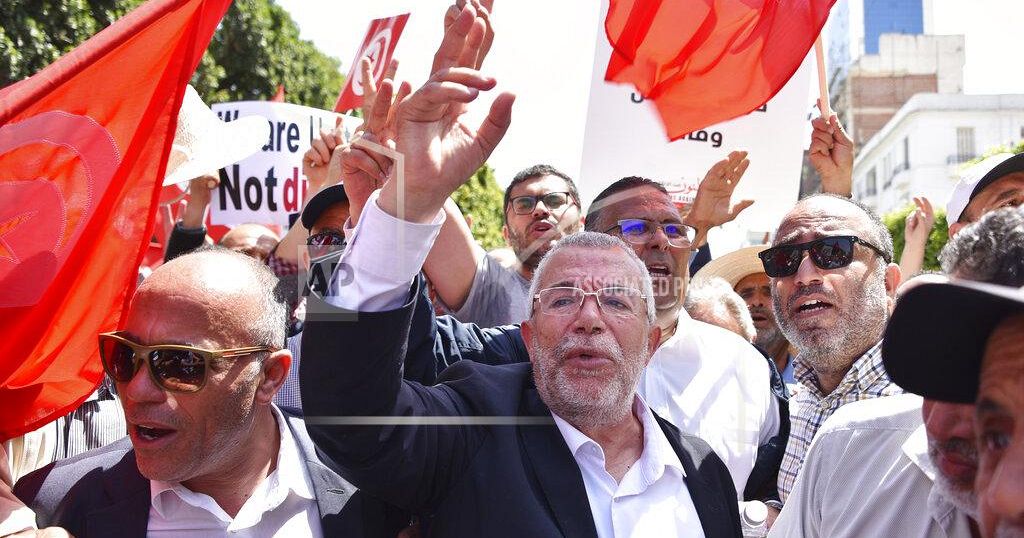
Tunisia on Friday handed opponents of President Kais Saied lengthy jail terms after convicting them of plotting against state security.
Issam Chebbi and Jawhar Ben Mbarek of the opposition National Salvation Front coalition, as well as lawyer Ridha Belhaj and activist Chaima Issa, were sentenced to 18 years behind bars, their lawyer said.
Businessman Kamel Eltaief received the harshest penalty of 66 years in prison.
They are among forty people, including high-profile politicians, businessmen and journalists, who who were being prosecuted on security and terrorism charges.
Critics say the charges lacked merit, and only served to consolidate Saied’s power grab.
The president won re-election virtually unchallenged last year after the jailing or disqualification on flimsy grounds of his opponents.
Saied has ruled mostly by decree since dismissing parliament in 2022 and promulgating a revised constitution giving himself wideranging powers in 2023.
Africa
Tanzania opposition says jailed leader not seen by family, lawyers
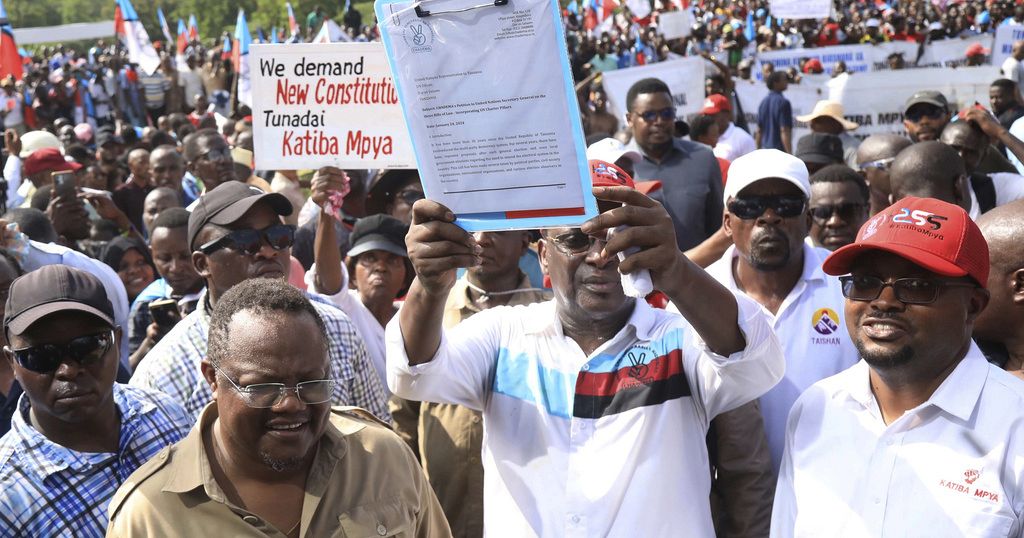
Tanzania’s main opposition party said it had failed to get access to its leader who is in detention on treason charges.
CHADEMA said Friday that the family and lawyers of Tundu Lissu had failed to see him at a Dar es salaam jail where he had been kept since his arrest on April 9.
In a statement, the party said it held the Tanzanian government and Prisons Service responsible ble for Lissu’s safety.
The Prisons Service quickly denied that Lissu had been moved from jail.
In a statement, the agency dismissed CHADEMA’s concerns as misinformation.
“We would like to inform the public that Tundu Lissu is safe and he is still detained at Keko Prison in Dar es Salaam according to the country’s laws and procedures,” the Service said in a statement.
Lissu came second in Tanzania’s 2020 presidential election. Last week, he was arrested and later charged with treason after a speech demanding election reforms.
Prosecutors said the speech called for an uprising.
With another presidential vote on the horizon, critics say President Samia Suluhu Hassan’s government has ramped repression against the opposition.
This week, the election commission banned CHADEMA from taking part in elections after the party refused to sign a document pledging to obey the commission’s orders.
-

 Sports2 days ago
Sports2 days agoAaron Rodgers ‘not holding anybody hostage’ as he decides his future, retirement a possibility
-

 Education2 days ago
Education2 days agoHarvard’s battle with the Trump administration is creating a thorny financial situation
-

 Europe2 days ago
Europe2 days agoTrump’s ‘lone ranger’: How Steve Witkoff became the defacto point man on America’s foreign policy challenges
-
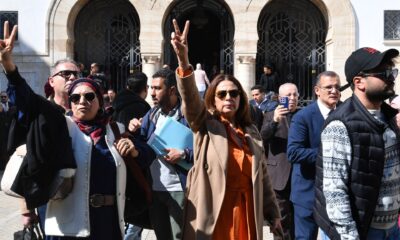
 Middle East24 hours ago
Middle East24 hours agoTunisian court hands opposition figures lengthy jail terms | Human Rights News
-

 Conflict Zones2 days ago
Conflict Zones2 days agoTrump says US may ‘pass’ on helping end war if Russia, Ukraine resist deal | Russia-Ukraine war News
-
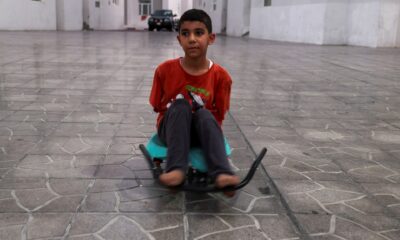
 Conflict Zones2 days ago
Conflict Zones2 days ago‘How do I live like this?’ asks Gaza boy who lost arms in Israeli attack | Gaza News
-

 Europe21 hours ago
Europe21 hours agoVance, Vatican officials engage in ‘exchange of opinions’ over migrants
-

 Europe2 days ago
Europe2 days agoRussia lifts terror group designation on Afghanistan’s Taliban




